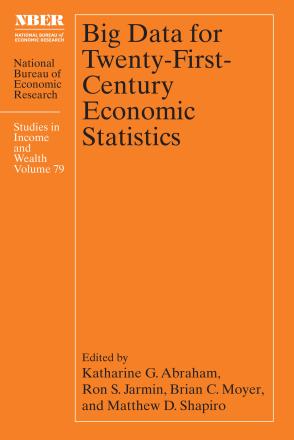Valuing Housing Services in the Era of Big Data: A User Cost Approach Leveraging Zillow Microdata

Historically, residential housing services or “space rent” has made up a substantial portion (approximately 10 percent) of US GDP final expenditures. In this study, we develop estimates valuing housing services based on a user cost approach and detailed microdata from Zillow (ZTRAX), a “big data” set that contains detailed information on hundreds of millions of market transactions. This approach directly incorporates market prices into the estimates and uses these prices for hedonic imputations based on rich property-level information, leveraging detailed data for markets that vary extensively by region and locality. We compare our estimates to the corresponding BEA series, which is based on a rental-equivalence method and traditional, survey-based data sources. Since 2002, initial results (from our default user cost specification) track aggregate home price indices more closely than the current BEA estimates, yielding much higher estimates of housing services during the housing boom with more similar estimates during the subsequent recovery. The study demonstrates the potential benefits of large data sources, highlights challenges associated with the user cost approach, and identifies ways that detailed microdata can improve detail in regional estimates.
-
-
Copy CitationMarina Gindelsky, Jeremy G. Moulton, and Scott A. Wentland, Big Data for Twenty-First-Century Economic Statistics (University of Chicago Press, 2020), chap. 12, https://www.nber.org/books-and-chapters/big-data-twenty-first-century-economic-statistics/valuing-housing-services-era-big-data-user-cost-approach-leveraging-zillow-microdata.Download Citation


